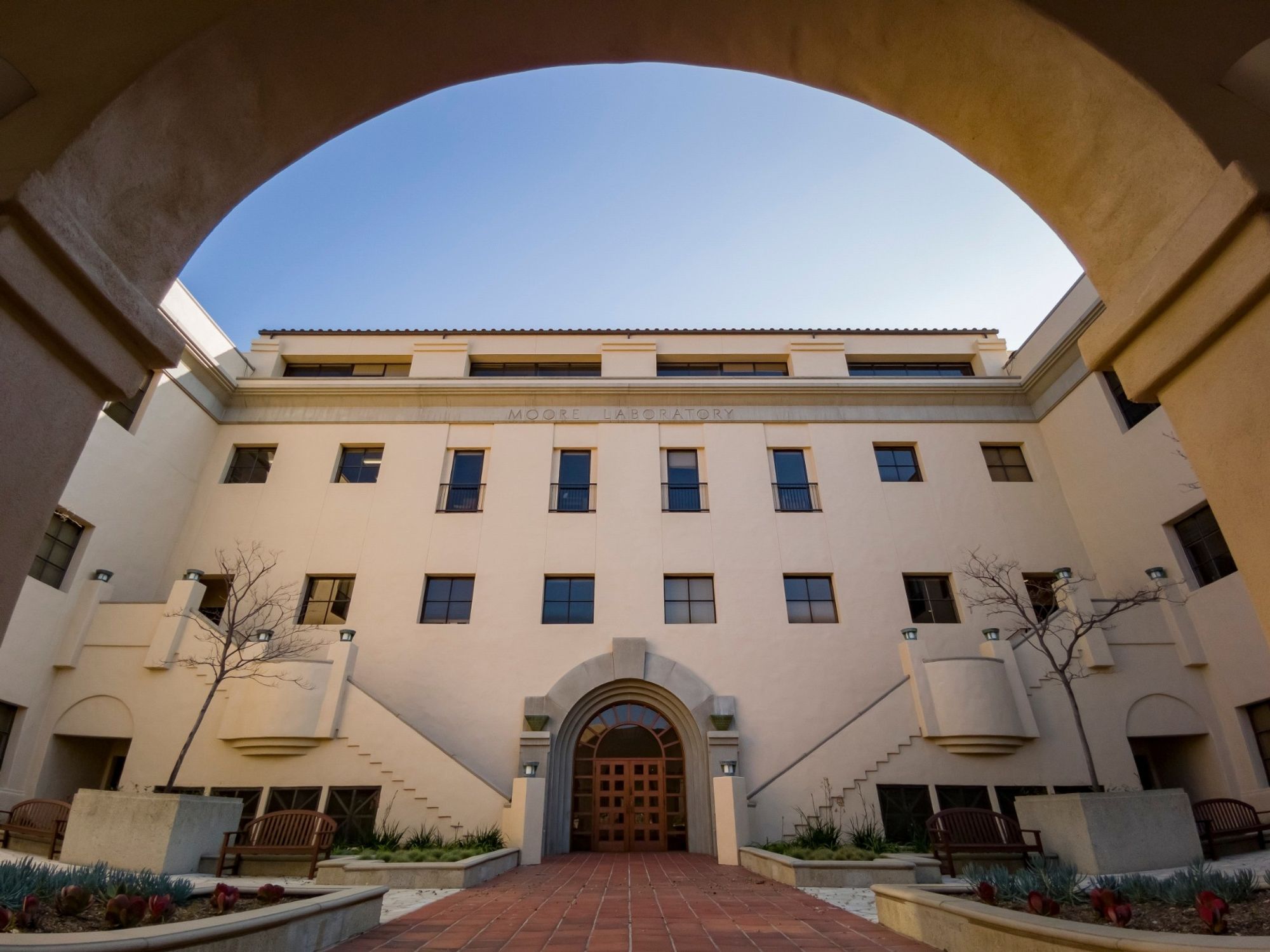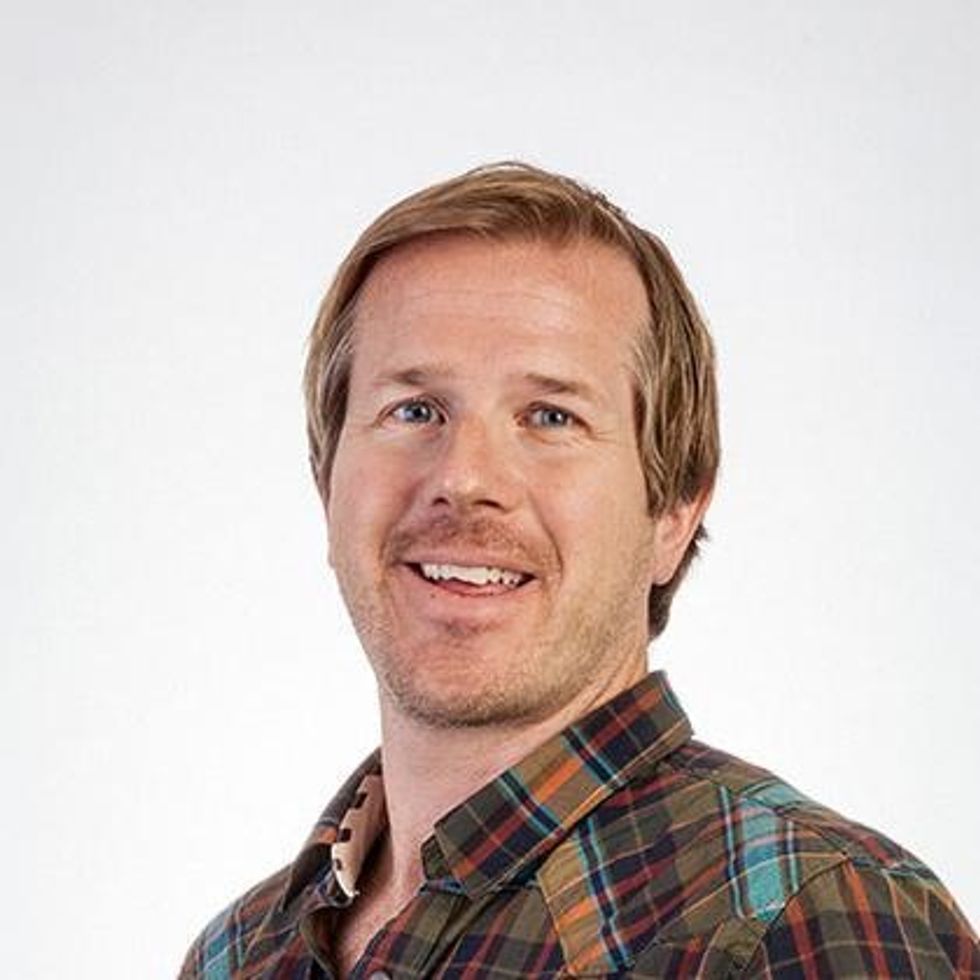Can Venture Capital Help Unlock 'Underdeveloped' Caltech?
Ben Bergman is the newsroom's senior finance reporter. Previously he was a senior business reporter and host at KPCC, a senior producer at Gimlet Media, a producer at NPR's Morning Edition, and produced two investigative documentaries for KCET. He has been a frequent on-air contributor to business coverage on NPR and Marketplace and has written for The New York Times and Columbia Journalism Review. Ben was a 2017-2018 Knight-Bagehot Fellow in Economic and Business Journalism at Columbia Business School. In his free time, he enjoys skiing, playing poker, and cheering on The Seattle Seahawks.

The California Institute of Technology ranks as one of the top universities in the world when it comes to receiving patents. But more of those inventions should successfully be making it to market, at least according to the investment thesis of Freeflow, a new pre-seed and seed stage venture firm that exclusively backs Caltech startups focused on human and planetary health.
"The people there are amazing scientists who are not afraid to tackle the hard problems," said Freeflow founder and managing partner David Fleck, who was an early Google employee who has spent the last 20 years tackling big data. "But as I started to spend more time there I realized the ecosystem was somewhat underdeveloped. They needed investors that could help them with capital and help them develop a company."
Fleck wants to be that investor. "We're the only one that we know of having this approach," he added.

David Fleck, who started Freeflow after he sold his online commenting service, Disqus, for a reported $90 million in 2017, hopes to broaden the perception of Los Angeles from a consumer tech hub to a place with the sorts of deep tech companies more commonly associated with where he spent most of his career, Silicon Valley.
Fleck, who started Freeflow after he sold his online commenting service, Disqus, for a reported $90 million in 2017, hopes to broaden the perception of Los Angeles from a consumer tech hub to a place with the sorts of deep tech companies more commonly associated with where he spent most of his career, Silicon Valley. He believes most L.A. VC firms, clustered in Santa Monica, neglect what they view as the hinterlands of Pasadena, where Caltech is based.
"It's very hard to go from west to east," Fleck said. "We made a conscious decision to say we are a Pasadena firm."
Freeflow has raised $8 million of capital so far and is aiming to close a $30 million fund by the end of the year with the help of the heavy hitters on its advisory board who are also serving as limited partners; Fred Wilson, founder of Union Square Ventures, Chris Farmer founder of SignalFire, and Chris Douvos, founder of Ahoy Capital.
Wilson, an early investor in Twitter, Tumblr and Etsy, is based in New York but spends several months every winter in L.A. "He became a good friend and mentor and encouraged us to go after the thesis," Fleck said.
Freeflow is fully independent of Caltech. That differs from the approach of the Massachusetts Institute of Technology, which launched its own venture fund as a public benefit corporation in 2016, The Engine, focusing on "tough tech." Stanford University backed an accelerator starting in 2013, StartX, though the university ended funding last year.
Caltech has had some notable success. Earlier this year, a federal jury in Los Angeles ruled Apple owed Caltech $837 million for selling WiFi chips that infringed on the school's patents and Broadcom, which sold the chips to Apple, owed Caltech another $270 million. (The companies are planning to appeal.)
Freeflow is aiming to back 20 startups over the next 18 months with check sizes averaging around half a million dollars and recently announced its first four investments:
- Appia Bio: Developing a stem cell therapy platform for the development of new drugs to treat cancer, which was initially developed in the Caltech lab of professor and Nobel laureate Dr. David Baltimore.
- Entos: Making physics-based machine learning software that maps chemical space to discover promising new molecules for therapeutics, vaccines and diagnostics through a SaaS model.
- Molecular Instruments: Designs and synthesizes kits for quantitative bio-imaging in drug development, clinical pathology and diagnostics and academic research.
- Toofon: Developing an autonomous, heavy lift drone for last-mile delivery and emergency response, which came out of Caltech's Center for Autonomous Systems and Technologies (CAST).
- Los Angeles Mayor Eric Garcetti on Startups and technology - dot.LA ›
- A New VC Hopes to Unlock the Potential in Caltech's Patents - dot.LA ›
- A New VC Hopes to Unlock the Potential in Caltech's Patents - dot.LA ›
- David Fleck Of FreeFlow Invests In Caltech Startups - dot.LA ›
- David Fleck Of FreeFlow Invests In Caltech Startups - dot.LA ›
- Appia Bio Aims to Offer Safer Cancer-Fighting Cell Therapies - dot.LA ›
- Caltech and Amazon’s New Computing Site is Open - dot.LA ›
- How Caltech’s Fred Farina Is Creating a Haven for Startups - dot.LA ›
Ben Bergman is the newsroom's senior finance reporter. Previously he was a senior business reporter and host at KPCC, a senior producer at Gimlet Media, a producer at NPR's Morning Edition, and produced two investigative documentaries for KCET. He has been a frequent on-air contributor to business coverage on NPR and Marketplace and has written for The New York Times and Columbia Journalism Review. Ben was a 2017-2018 Knight-Bagehot Fellow in Economic and Business Journalism at Columbia Business School. In his free time, he enjoys skiing, playing poker, and cheering on The Seattle Seahawks.





 Image Source: Blackbird
Image Source: Blackbird